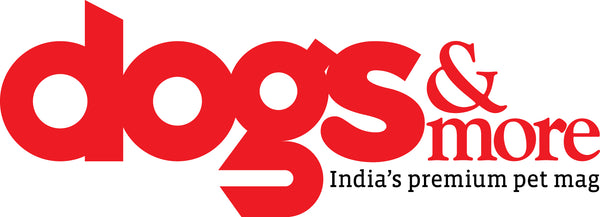Similar to people, dogs also need sufficient amounts
of water for their bodies to work efficiently.
Water is an essential that is required for all
bodily functions and to maintain
proper health and operation of various organs.
Dehydration causes the body to lose
excess amounts of water and electrolytes.
This imbalance of electrolytes in the body can cause
multiple symptoms and serious side effects such
as lethargy, changes in blood pressure, etc.
It is important to understand dehydration in dogs as
it can lead to organ failure and cause
unconsciousness or, even worse,
death in extreme cases.
What is dehydration in dogs?
A dog’s normal activities throughout the day such as
breathing, panting, urinating, etc. can cause the
body to lose fluids.
A dog’s body can lose water even from simple
evaporation from the paws.
It is especially significant in summer. So when a
dog drinks or eats, their body recuperates
the lost fluids and electrolytes.
If the water or fluid intake becomes less than the
amount lost, it leads to dehydration.
When the total body fluids lower, this in turn,
leads to low blood flow, which results in reduced
oxygen delivery to all parts of the dog’s body.
Electrolytes such as sodium, chloride, potassium, etc.
are minerals that are important for various
functions in the body.
They regulate the movement of muscles,
nerve cell activity, balancing pH of the body,
transfer of multiple nutrients to the cells, etc.
Hence, dehydration and imbalance of electrolytes
can cause problems with all these functions.
Signs of dehydration in dogs
How can you tell if your dog is dehydrated?
Here are a few signs and symptoms
that your dog may exhibit, that can help to
understand what is happening and respond quickly
before any serious medical issues occur.
Some of the signs of dehydration in pets are:
-Loss of appetite
-Lethargy or reduced energy levels
-Excessive panting
-Loss of skin elasticity
-Dry or cracked nose
-Excessive vomiting
-Diarrhea
-Thick saliva
-Reduced urination
-Dry mouth and dry or sticky gums
-Sunken or dry eyes
If you notice any of the above signs in your dog,
please consult a veterinarian.
It is important to look out for signs of dehydration
in dogs to avoid severe health issues
Causes of dehydration in dogs
There are many reasons why dehydration can
occur in dogs. A few of them are:
-Reduced consumption of food
-Reduced or limited intake of water or any fluids
-Excessive breathing and panting
-Excessive vomiting with or without diarrhea
-High temperature or fever
-Any chronic illness such as kidney problems
-Injuries that can lead to blood loss
-A sudden increase in temperature or weather change
-Burns
-Overheating
Dehydration in dogs can occur
due to several reasons
It is important to remember that some dogs
such as younger dogs, older dogs,or even nursing dogs, are more prone to dehydration. Certain types of
small dog breeds, such as Chihuahuas,
can experience dehydration quickly and severely.
Treatment for dehydration in dogs
If you start noticing any signs or symptoms
of dehydration, immediately give fluids or
water to your dog. Ask your veterinarian first
if you are confused about how much water to give.
If the symptoms of dehydration are mild,
then providing access to freshwater to your dogs
is often enough. If the dog has any previous illness
or chronic conditions such as kidney problems,
consult your vet before giving any fluids.
But, if the symptoms are more acute or moderate
to severe, or if the dog is debilitated and is unable
to drink or eat anything by themselves - administering
fluid therapy is required. Your vet will give the
treatment through injections directly into the
vein by a slow IV infusion in a clinical setting.
Most times, this IV infusion is enough to rehydrate.
It is important to remember that fast infusion
or rehydrating quickly can lead to adverse
side effects such as high blood pressure,
fluid retention, heart failure, kidney damage, etc.
Hence, it is important to rehydrate slowly.
If dehydration is occurring due to any underlying
conditions such as diarrhea, vomiting, kidney problems,
etc. then your vet will first address these concerns
along with correcting the fluid levels.
Things you can do at home to avoid dehydration in dogs: -Ensure you keep a clean and fresh bowl of water
at all times, vets recommend keeping a water
bowl next to their food bowl ---In summers,
it is recommended to increase the quantity of wet
food as wet food helps avoid dehydration and
keeps their gut happy. Do speak to a
canine nutritionist before doing so
Wiggles Wet Food
-Avoid taking your dog out for a walk during
the afternoons or when the temperature
is comparatively higher. Early mornings or
late evenings are a good time to take
your dog out for a walk. It is also
recommended to carry a bottle of water
and a bowl on your walks
-To increase your pets' water intake, our vets
recommend giving them refreshing drinks like
Cocotail™ which is infused with coconut
water, prebiotics and healthy ingredients
Cocotail™ Healthy Drink for Dogs & Cats
Cases of upset stomach increase in summers,
hence it is important to maintain good
gut health. Use probiotics like Stripzy™ to
maintain good gut bacteria and avoid
gut-related problems
Stripzy™ Immunity Booster and Probiotic Pet Strips
Check out our vet-approved summer care tips
to help your pet stay fit and healthy even
It is important to act as soon as possible to correct
the dehydration and electrolyte imbalance in dogs.
In some cases, dogs may not show obvious
symptoms of dehydration and they can be subtle.
So, try to observe and notice any changes
in behavior, especially if your dog is more prone
to dehydration or has any underlying illnesses.
In such cases, consult your vet for a treatment plan
even before dehydration occurs. It is a
time-sensitive condition; if left untreated for more time,
the symptoms can become more severe.
Know that Team Wiggles and our vets are always
a call away and here to help you and your pet out.
Reach out to us at +91 8431620000 for all things pets!
Team Wiggles has started an initiative called
#BondedByBlood through which we are trying
to create an online repository of ready pet donors
Register your pet today & save a life tomorrow.
Join Wiggles Tribe, our 30k+ community of
pet parents on Facebook where our in-house
team of vets answer your pet-related queries 24/7.
*Disclaimer: This blog is vet-approved and
includes original content which is compiled
after thorough research and authenticity by our
in-house team of vets and content experts.
It is always advisable to consult a veterinarian
before you try any products, pet food or any
kind of treatment/medicines on your pets,
as each pet is unique and will respond differently.



















